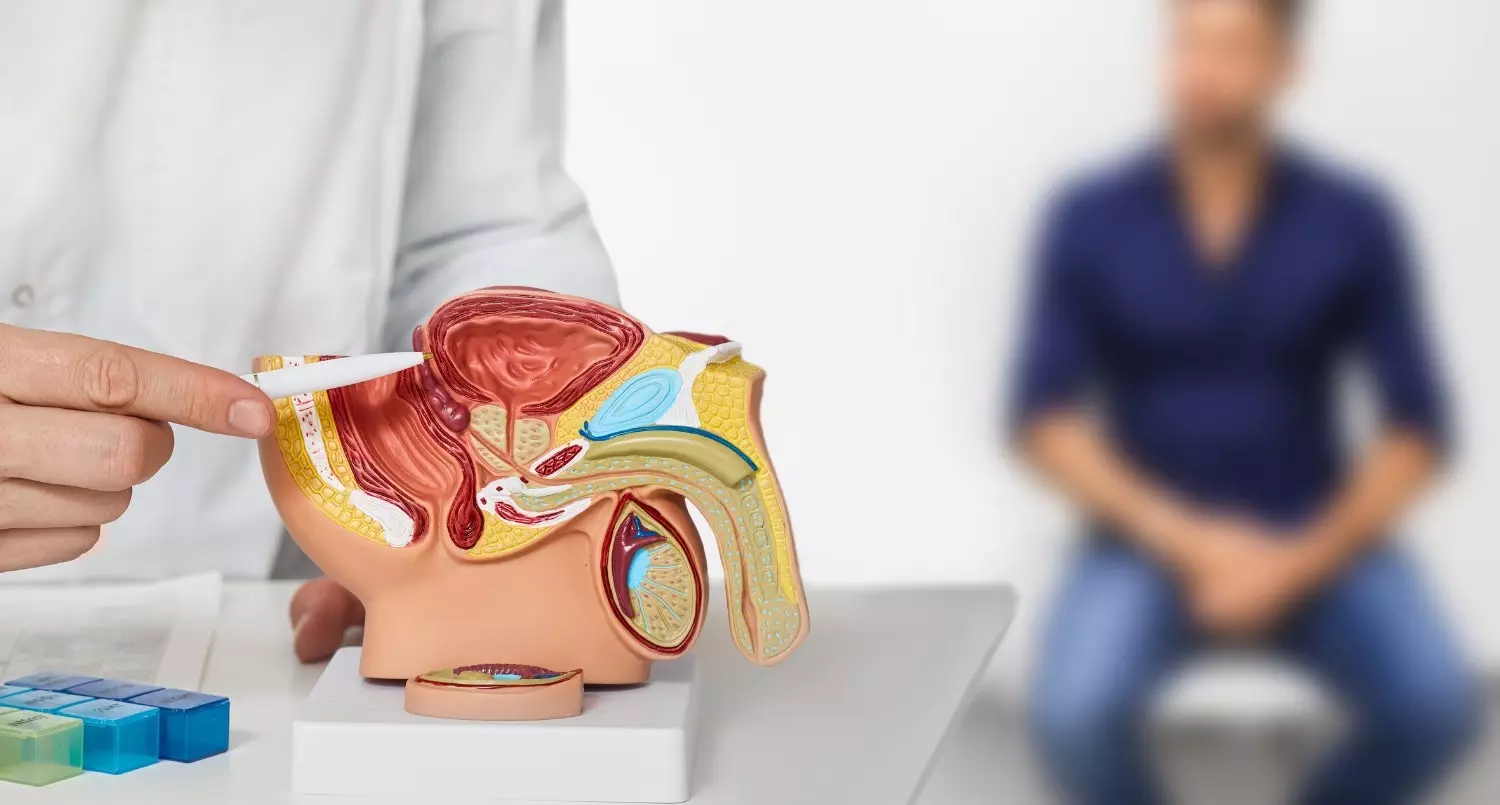
Can you prevent prostate cancer? What to know after Joe Biden's diagnosis
Prostate cancer is primarily a “disease of aging”- it primarily affects older men, with African American men and those with a family history facing higher risks

Former US President Joe Biden’s diagnosis with advanced, aggressive prostate cancer has thrown global attention on this deadly disease.
The finding came after the 82-year-old reported urinary symptoms, which led doctors to discover a nodule on his prostate. He was diagnosed with prostate cancer on Friday, with the cancer cells having spread to the bone.
Prostate cancers are graded for aggressiveness using what’s known as a Gleason score. The scores range from 6 to 10, with 8, 9 and 10 prostate cancers behaving more aggressively.
Biden’s office said his score was 9, suggesting his cancer is among the most aggressive.
Also Read: Biden has aggressive prostate cancer that is ‘treatable, but not curable’
Prostate cancer
The prostate is part of the reproductive system in men. It makes fluid for semen. It’s located below the bladder and it wraps around the urethra, the tube that carries urine and semen out through the penis.
The prostate needs male hormones to work the way it should. The main male sex hormone is testosterone. Testosterone helps the body develop and maintain male sex characteristics.
Testosterone is changed into dihydrotestosterone (DHT) by an enzyme in the body. DHT is important for normal prostate growth but can also cause the prostate to get bigger and may play a part in the development of prostate cancer.
Outcomes have improved in recent decades and patients can expect to live with metastatic prostate cancer for four or five years, said Dr Matthew Smith of Massachusetts General Brigham Cancer Center.
Early diagnosis
While Biden's treatment is underway, his diagnosis may make people wonder how to prevent prostate cancer, but there’s no one way to avoid the disease.
When caught early, prostate cancer is highly survivable, but it is also the second-leading cause of cancer death in men.
Prostate cancer is primarily a “disease of aging.” Prostate cancer primarily affects older men, with African American men and those with a family history facing higher risks.
While factors such as age, race, and genetics cannot be changed, early screening can often be life-saving as it ensures that if you do have cancer, it’s diagnosed and treated as soon as possible.
Also Read: Complete treatment critical for survival of prostate cancer patients: Study
Foods to eat
Making changes to your eating habits may help. Studies suggest that men in Western countries, where diets are typically high in fat, are more likely to develop prostate cancer than those in Asian countries. A few smart dietary switches can make a meaningful difference.
Reduce fat intake: Consume less trans and saturated fats. Choose leaner cuts of meat. Focus on healthy fats such as omega-3 fatty acids from nuts, seeds and fish.
Load up on vegetables and fruits: Incorporate a wide variety of produce, including plenty of leafy greens. The antioxidant lycopene, which is abundant in tomatoes, has been shown in some studies to slow the growth of prostate cancer cells. Cruciferous vegetables (e.g., broccoli and cauliflower) contain a compound called sulforaphane that may protect against cancer.
Add green tea and soy: Clinical trials have suggested that soy may lower Prostate-Specific Antigen (PSA) levels, and that green tea may help men who are at high risk for prostate cancer lower their risk.
Avoid charred meat: Charred meat, from frying or grilling at high temperatures, may produce a chemical compound that leads to cancer.
Limit dairy intake: A diet high in dairy foods and calcium may also increase the risk of prostate cancer.
Exercise matters
Studies show that those who exercise may have a lower risk of prostate cancer than those who don't. Exercise helps your health in many ways. Regular exercise helps with weight control, inflammation, and immune function.
Exercise can also help you stay at a healthy weight or lose weight if you need to. People who are obese may have a higher risk of prostate cancer, so staying fit is critical. Obesity can be a risk factor for developing more aggressive prostate cancer.
Aim for at least 150 minutes of moderate physical activity a week.
Also Read: Coffee compounds may reduce prostate cancer risk
No drinking or smoking
Certain studies show that people with prostate cancer who smoke have a higher risk of the cancer coming back. They also have a higher risk of the cancer spreading beyond the prostate.
Drink less alcohol, and if you do, drink red wine in moderation, as some studies show that it has antioxidant properties that may benefit your health.
Increase Vitamin D intake
Most people don’t get enough vitamin D. It can help protect against prostate cancer and many other conditions.
Include Vitamin D-rich foods like cod liver oil, wild salmon and dried shitake mushrooms in your diet. Many experts also recommend getting 10 minutes of sun exposure (without sunscreen) every day.
Drugs to treat prostate cancer
Prostate cancer can be treated with drugs that lower levels of hormones in the body or stop them from getting into prostate cancer cells.
Since DHT plays a major role in the development of prostate cancer, patients are often treated with dihydrotestosterone (DHT)-lowering drugs called finasteride or dutasteride.
These drugs have been studied extensively to determine whether they can prevent prostate cancer, and results suggest that they could reduce cancer risk by about 25 per cent.

